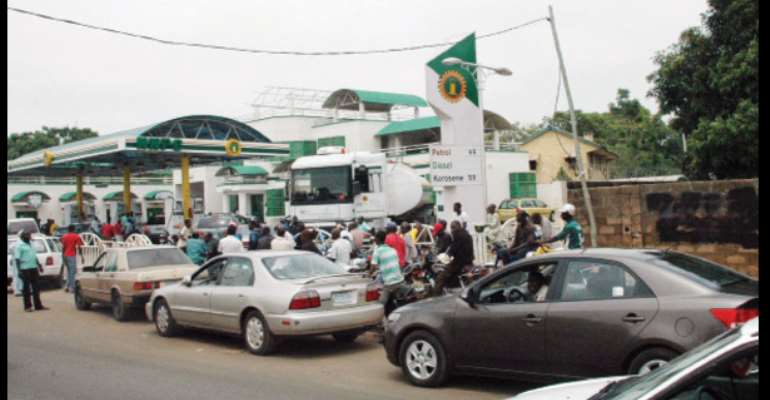SCARCITY UNVEILS HARD TRUTHS

An unwelcome, but familiar, sight of lengthy fuel queues sprawled out at many petrol stations across the country has led to widespread panic buying and mass confusion regarding the origins of the scarcity.
Oil & Gas analysts have pointed to two directives by the Central Bank of Nigeria to banking institutions as critical to the ongoing shortage of Petroleum Motor Spirit (PMS).
In late December 2014, with oil prices falling, the CBN directed all banks to reduce transactions with Oil and Gas companies due to pending liquidity issues and fiscal challenges in meeting the vast funding demands of Oil and Gas companies.
The communique was sent out on the back of a recent risk-based supervision exercise which highlighted the financial industry's level of exposure to the oil & gas sector combined with existing risk management deficiencies, and the necessary steps to ensure that banks have sufficient capital buffers to mitigate escalating risk-taking activities.
Additionally, the CBN recently closed the retail Dutch Auction System/wholesale Dutch Auction System (rDAS/wDAS) segment of the foreign exchange market, and quoted an exchange rate of N198/inferring a Naira devaluation at the interbank FX market and further prompting pressure on the nation's currency.
The apex bank also banned commercial banks from re-selling CBN dollars to other banks in an attempt to end Naira speculation, and by scrapping its window of direct sale of foreign exchange to end users has directed that all foreign exchange needs are to be sourced from the interbank market, which has rate ranging from N197 – N198 to $1.
Consequently, the CBN's actions led to precautionary measures taken by marketers on the importation of products, and a larger reliance on product allocation by the Pipeline Product Marketing Company (PPMC), the marketing entity of the NNPC, which has said it has injected a further 688 million litres of PMS into the market to alleviate the ongoing shortage.
Undoubtedly, marketers are caught between a rock and a hard place as their operations are highly restricted by the lack of funding from the banks on one side and back payments owed in subsidies. Marketers now face myriad issues ranging from fund sourcing, letters of credit, and more critically restrictions on the purchase of Forex to enable the steady flow of product importation.
“The nation's marketers will find it very difficult to function without the appropriate fiscal backing required from the banks and the CBN in particular. The delays in the payment of Petroleum Subsidy Funds by the federal government has led to the non-issuance of Letters of Credit for marketers, even within authorised bands of transactions, due to the CBN's directive that banks become risk averse to oil and gas companies. The nature of it all is very cyclical,” said a Lagos-based analyst who chose not be named.
Lamenting the situation, a marketer, who craved anonymity, drew attention to hardship being faced by importers of PMS under the PSF scheme as a result of the huge outstanding receivables due and payable to them from the federal government. He stated that although the PPPRA pricing template provides for a marketer to be paid the subsidy element within 45days of submitting complete and verified documentation, bulk of the reimbursement due to importers are typically paid not less than 180 days or more. Consequently, the enormous challenges created by liquidity squeeze, including mounting bank interest charges and huge exposures to foreign exchange fluctuations is major threat to the survival of many of the operators.
A statement released earlier this week by the Nigerian National Petroleum Corporation (NNPC) indicated that the present shortage was caused by a halt in the importation of products due to ongoing delays in the outstanding payment of N264 billion subsidy claims to marketers by the government.
This payment is for product importation between July 2014 till date, and Marketers are also owed N100 billion in Forex exposure—due to naira devaluation—between Jan 2014 till date and accumulated interest exposure from 2013 till date.
Written by Uche Igwe, Doctoral Researcher, Sussex Center for the Study of Corruption, Department of Politics School of Law, Politics and Sociology Freeman Building University of Sussex, Falmer Brighton.
BN1 9QE
P:+447774905040
E: [email protected]
E: [email protected]
